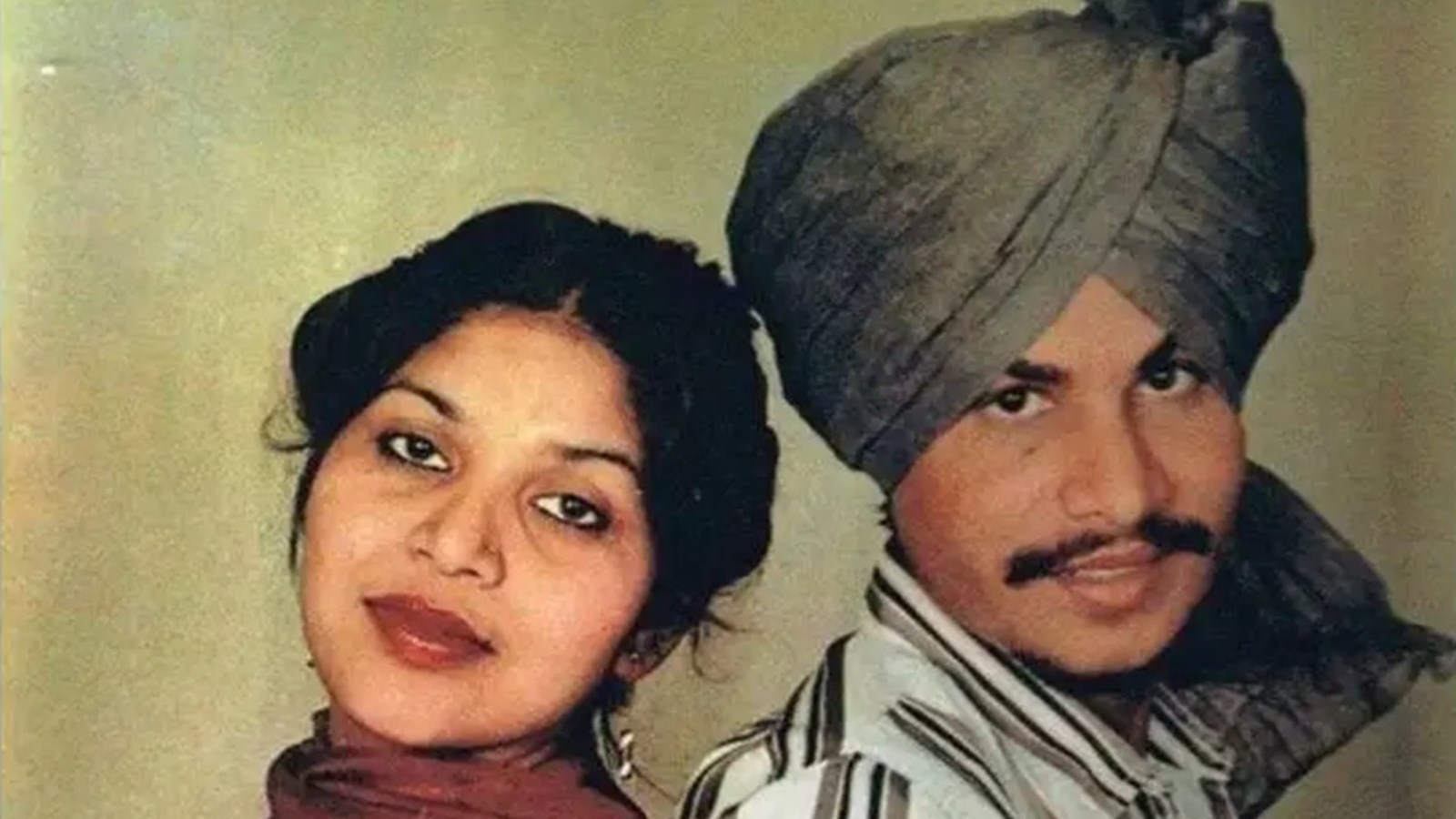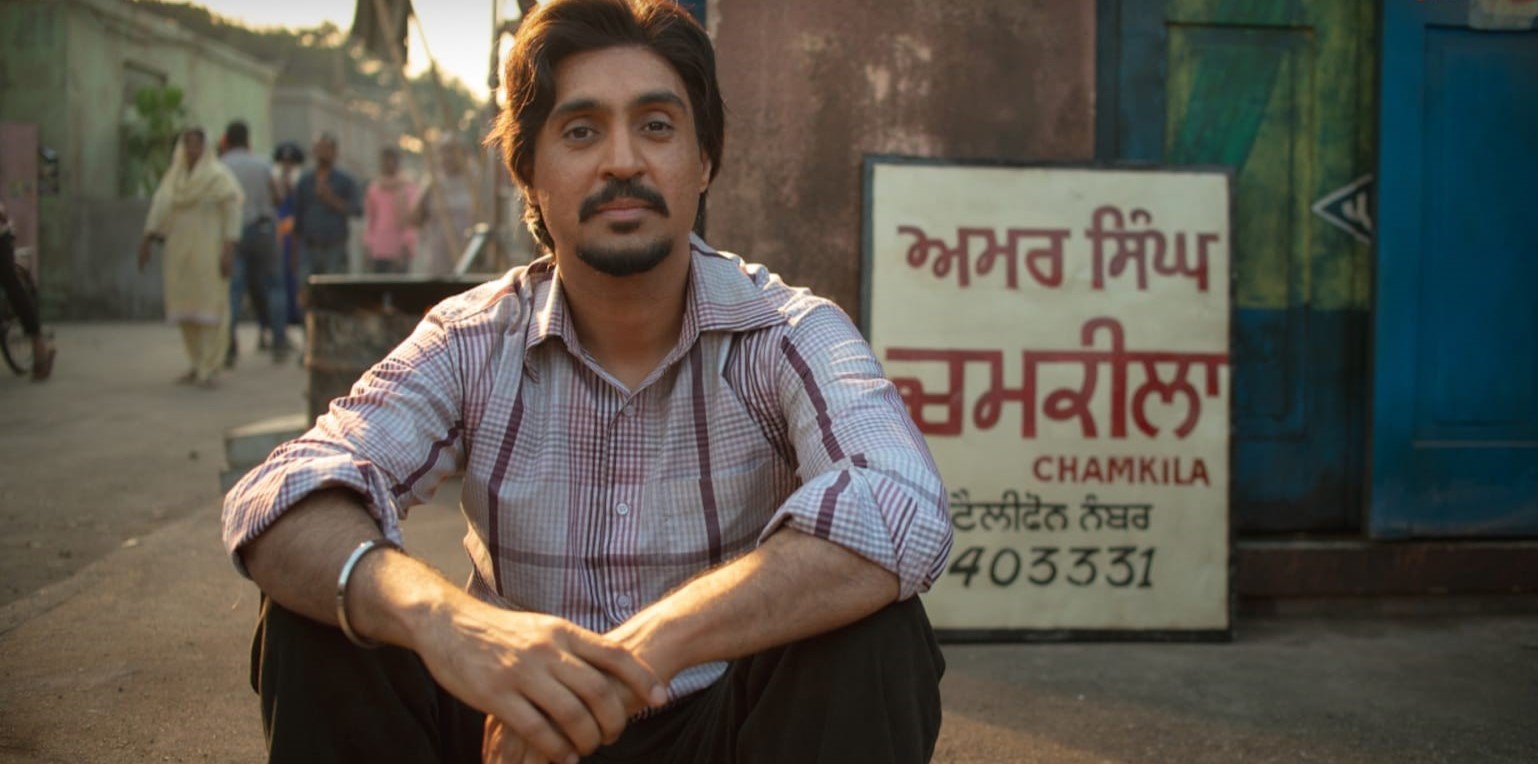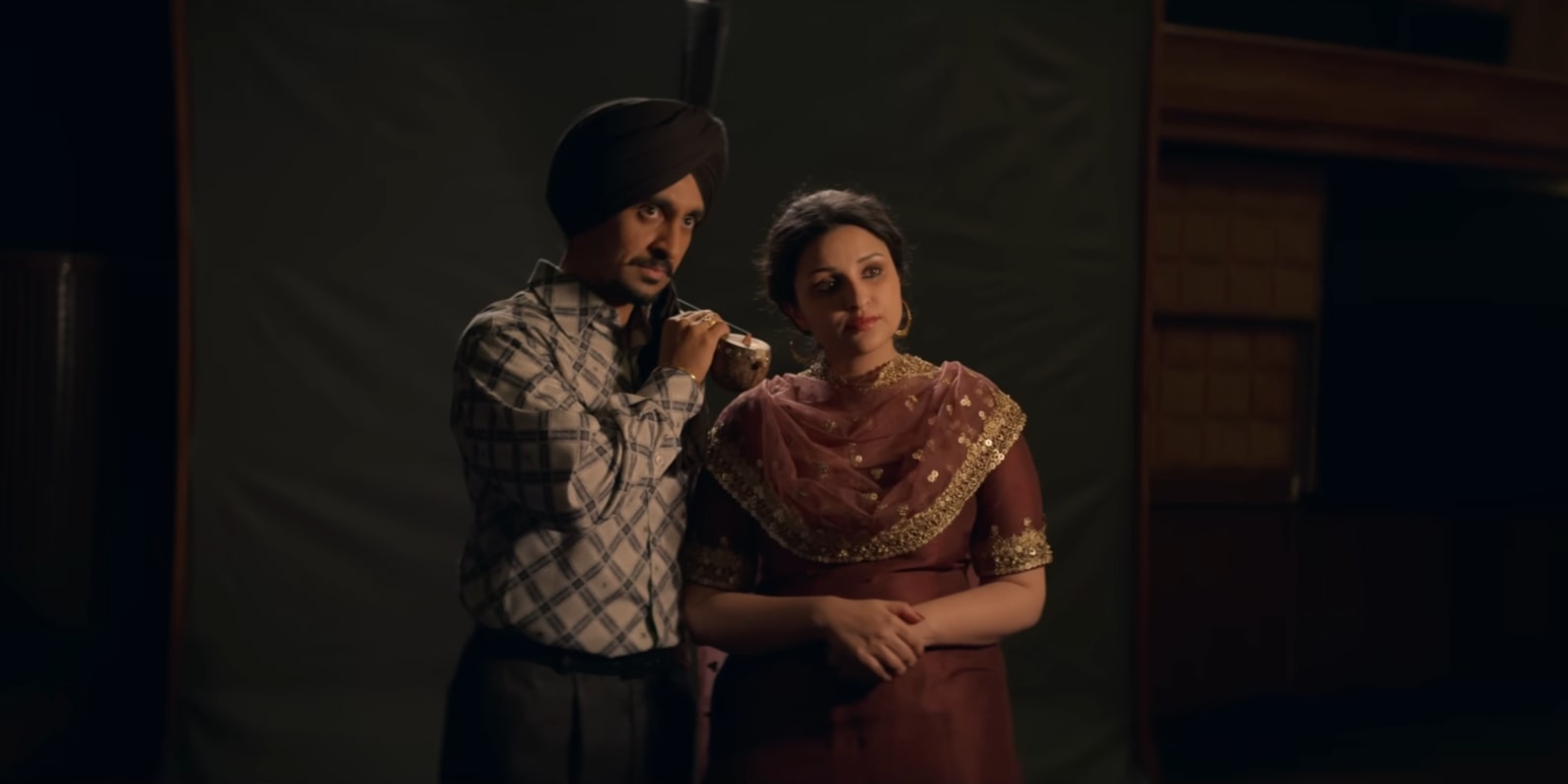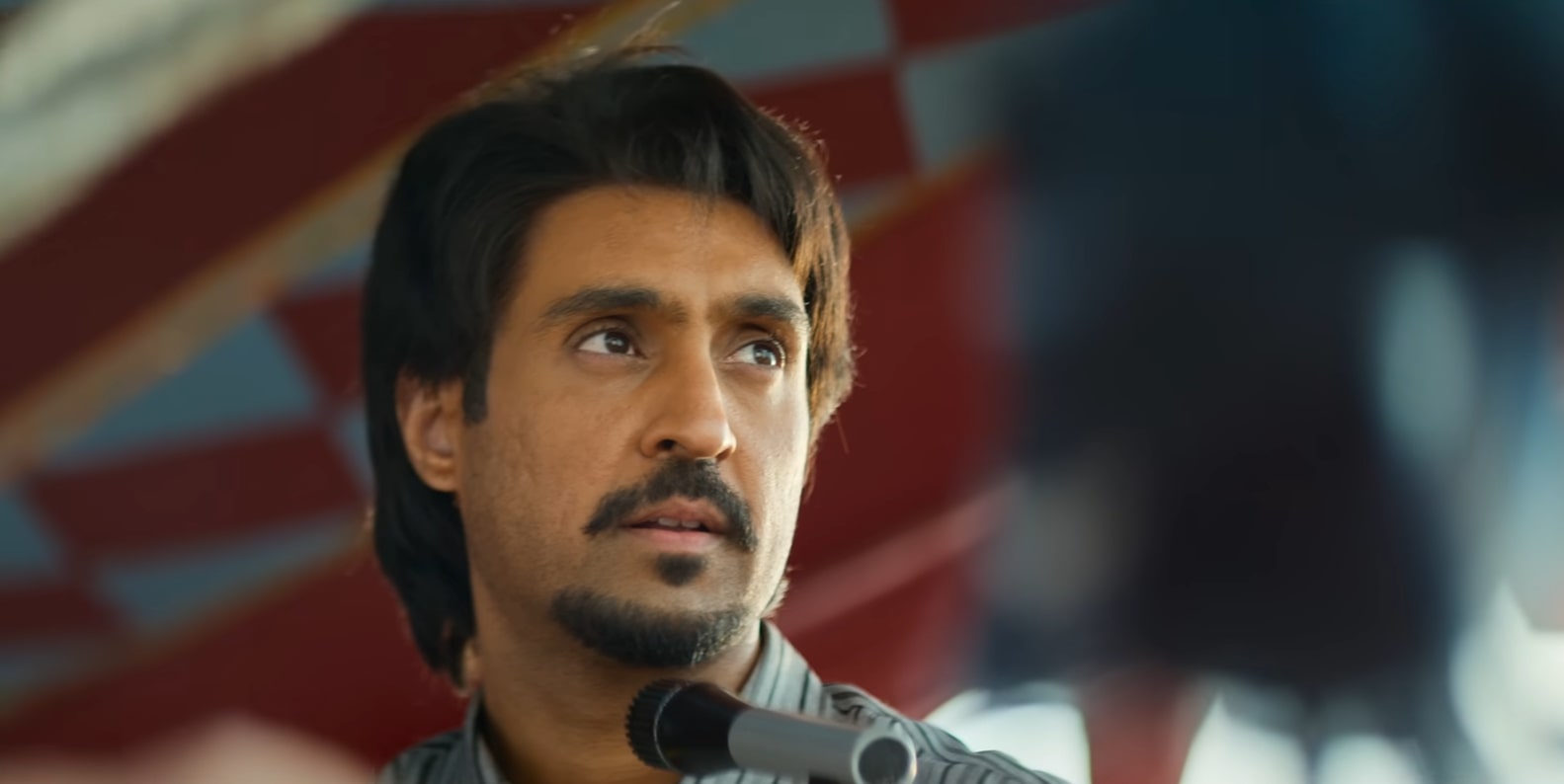Under the direction of Imtiaz Ali, ‘Amar Singh Chamkila’ narrates the tale of the titular character as he rises from being a poor mill worker to a popular and controversial singer in the 1980s north Indian state of Punjab. Amar Singh has a passion for music and singing but is forced to work in a cotton mill, making socks. When he gets the opportunity to perform on a village stage, Amar Singh starts making waves in the local music scene. The singer quickly grasps the kind of music people want to hear and brings about a complete shift in his performance by writing and singing about day-to-day realities, women, and the nature of Punjabi men.
Adopting the stage name Chamkila, Amar Singh becomes an instant hit and pairs up with Amarjot Kaur to perform across venues in the state. While the duo is wildly popular and the singers become romantically involved, they begin to face social backlash for their uninhibited lyrics and the taboo subjects discussed in their songs. The Netflix musical drama presents a compelling rags-to-riches story that explores themes of ambition, artistic integrity, and cultural upheaval.
Amar Singh Chamkila is a Biopic of the Titular Punjabi Singer
‘Amar Singh Chamkila’ chronicles the life of the trailblazing Punjabi singer of the same name, who revolutionized the landscape of Punjabi music and became a martyr for artistic expression. The film accurately depicts the singer’s humble beginnings, passion for music, astronomical rise to fame, and controversial nature. Acquiring the rights to Chamkila’s story in 2020, Imtiaz Ali set about researching his songs and anecdotes, realizing the singer’s transcendental appeal and achievements in representing his marginalized community. The acclaimed director conducted thorough research when it came to retelling Chamkila’s story and tried to stick as close to the facts as possible.

“As far as I know, it’s completely authentic and true (the movie). I have not taken any shortcuts. I have not made any scenes out of my imagination,” said Imtiaz Ali in an interview. “Also, as a filmmaker, when you go out looking for the truth, you end up knowing more dramatic things.” When actor and singer Diljit Dosanjh was asked to take on the role of Amar Singh Chamkila, he was initially hesitant. An incredibly popular Punjabi musician himself, Dosanjh was afraid that a Bollywood production might not capture the essence of Chamkila’s story. At the time, Dosanjh was already working on a Punjabi movie based on the late singer’s story called ‘Jodi.’

However, when he read the script and realized the director’s understanding of the project, Dosanjh signed on. “I thought I knew a lot about Chamkila before meeting him (Ali),” revealed Dosanjh in an interview. “When I heard his perspective, it was completely different. It was a big thing for us that his story was being said in such a big manner. When sir offered me the film, I surrendered to his vision.” While the film depicts the rags-to-riches story of Amar Singh Chamkila authentically, it also seeks to capture the cultural atmosphere of 1980s Punjab, giving us a sense of the environment the musician hailed from.
The era had not seen any other performers like him, and his lyrics, while a breath of fresh air for many, perturbed some on the conservative side of society. Chamkila’s songs would explore social taboos, including drug problems, alcoholism, and extramarital affairs, while also featuring sexual humor. Additionally, the singer hailed from the Ravidasia Sikh Chamar community, which is considered a backward cast, and also included the plight of cast discrimination in his songs. It is believed that these factors drew the ire of multiple groups, including Khalistani separatists, local gangsters, and others who were sensitive about Punjab’s social identity.

As seen in the film, Chamkila would frequently receive death threats and was confronted by many regarding the nature of his lyrics. Yet the performer continued to pursue his passions and write as he and Amarjot wanted to. The duo continued to gain fame and popularity, reaching beyond the borders of India and resonating with Punjabis worldwide. They would usually perform at local venues and have concerts booked throughout the year. At the height of their popularity, Chamkila and Amarjot performed at 366 concerts in 365 days, their husband-wife duet becoming a phenomenon.
The biopic presents its own theory around the murky nature of Chamkila’s death. While in Mehsampur for a performance in 1988, Amar Singh Chamkila and Amarjot Kaur were shot alongside two of their band members by a group of armed motorcyclists. Police investigations into the incident led to a dead end, and no suspects were arrested. Aghast, Chamkila’s close friend, Swarn Sivia, conducted his own investigation into the assassination, refuting the prevalent theory of Khalistani elements having a hand behind it. While the identity of Chamkila’s killers remains a mystery, the singer has been immortalized in Punjab’s musical and cultural history as an uninhibited talent who revolutionized its landscape.

In 2022, another sensational and provocative Punjabi singer, Sidhu Moose Wala, was assassinated by gunmen while visiting his village. Goldy Brar, a Canadian gangster of Indian origin, claimed responsibility, while his associate Lawrence Bishnoi and his gang also confessed to having a hand in the assassination. Sony LIV’s ‘Chamak’ was also loosely based on Amar Singh Chamkila’s story and strongly condemned violence against artists. The show depicted the fictional son of Chamkila returning to India and exacting revenge against the system that killed his father. The series also referenced the death of Sidhu Moose Wala and paid homage to the rapper.
Netflix’s ‘Amar Singh Chamkila’ pays tribute to the real-life artist’s extraordinary story, authentically recreating the situations surrounding his rise and his tumultuous time in fame. The film takes us far beyond the public realm of knowledge on the singer, taking a deep dive into the man behind the performance, narrating lesser-known anecdotes, and shedding light on some of the mysteries surrounding him. With actors Diljit Dosanjh and Parineeti Chopra singing Chamkila and Amarjot’s actual songs in their style, the film becomes even more impactful in its authentic portrayal of the duo’s charisma.
Read More: Best True Story Movies on Amazon Prime


You must be logged in to post a comment.